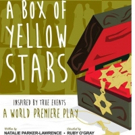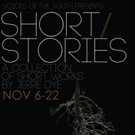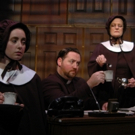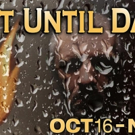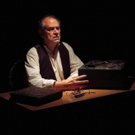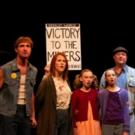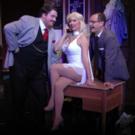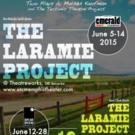Joseph Baker - Page 2
 I received my Master of Arts Degree in English from Memphis State University and worked as an English instructor at Christian Brothers High School from 1971 until 2007. When I retired, I was Chairman of the English Department and moderator of the Film Society. I have always been involved in the arts, and upon retirement I pursued my interests in painting (watercolors, acrylics, oils) and sketching (charcoal, pen and ink, graphite), ultimately resulting in a one-man show at WKNO Gallery in 2013. Having taught American, British, and World Drama, I have always had an interest in local theatre; and my reviews of plays at such venues as Theatre Memphis, Playhouse on the Square, and Circuit Playhouse have been posted on FACEBOOK and CALLBOARD in Memphis.
I received my Master of Arts Degree in English from Memphis State University and worked as an English instructor at Christian Brothers High School from 1971 until 2007. When I retired, I was Chairman of the English Department and moderator of the Film Society. I have always been involved in the arts, and upon retirement I pursued my interests in painting (watercolors, acrylics, oils) and sketching (charcoal, pen and ink, graphite), ultimately resulting in a one-man show at WKNO Gallery in 2013. Having taught American, British, and World Drama, I have always had an interest in local theatre; and my reviews of plays at such venues as Theatre Memphis, Playhouse on the Square, and Circuit Playhouse have been posted on FACEBOOK and CALLBOARD in Memphis.
November 30, 2015
Whether it's fruitcake or eggnog, people love their traditions during the Holiday Season -- and you'd better not disappoint. Memphians are accustomed to cranky 'Ebeneezer Scrooge' hoarding his coins at Theatre Memphis, and in midtown, we're resigned to A TUNA CHRISTMAS at Circuit and PETER PAN at Playhouse on the Square. Just last year, I had seen two -- yes, TWO -- productions of the latter: The version done live on NBC (with an off-center, almost 'sleep walking' Christopher Walken as 'Captain Hook') and the marvelous version directed and choreographed by Jordan Nichols and Travis Bradley at Playhouse. The Playhouse featured players were the unique Morgan Howard (as 'Peter') and the versatile David Foster (as a 'Jack Sparrow'-like 'Hook'); they were alternating the roles with Carly Crawford and Bill Andrews. I am happy to report that I finally was able to see Ms. Crawford and Mr. Andrews assay those roles, and they were equally inspired casting choices (but more about that later).
November 23, 2015
Produced by the Women's Theatre Festival of Memphis, Natalie Parker-Lawrence's A BOX OF YELLOW STARS is a play inspired by true events -- one man (we never know his name) rescues fifteen women from the horrors of the Holocaust by . . . marrying each one and taking her beyond the reach of the Nazis. I only had a sketchy knowledge of what Ms. Parker-Lawrence was attempting in this play, and knowing practically nothing else, I questioned what her approach would be. (At one point I imagined a grim line-up of fifteen women relating horrific experiences, and that would have been a torturous experience indeed.) What she has accomplished is a surprisingly balanced piece: She wisely utilizes humor and dry wit to leaven her characters' painful, sometimes long-buried recollections.
November 18, 2015
There are the warhorse musicals of Rodgers and Hammerstein, Cole Porter, and Irving Berlin; there are the lavish productions befitting Phantoms in opera houses and French revolutionaries and revisionist fairy tales (and you know the ones I mean); there are the Disney powerhouses; and . . . there are musicals of a quaint, mind-nudging nature that don't quite fit into any category. Certainly THE FANTASTICKS comes to mind, and -- at least in the previous productions I have seen -- Stephen Schwartz's PIPPIN. Somewhere in my video collection is a filmed version of the musical with William Katt, and just a few years ago PIPPIN was the first musical staged at the shiny, new Playhouse on the Square (with Alvaro Francisco stepping in for a sidelined Jordan Nichols). I sometimes think that small-scale musicals are better suited to venues less grand than the Orpheum; I needn't have worried, however, as PIPPIN has acquired the kind of theatrical, Cirque du Soleil-style atmosphere that perfectly suits the show's opening number, 'Magic to Do.'
November 16, 2015
People shuttle back and forth at an airport, dragging their luggage behind them. A preoccupied 'Rider,' texting away, impatiently boards an uber cab as his Indian driver eagerly greets him -- and enthuses that they were almost destined to meet. As the passenger, initially annoyed at the driver's prattling, hopes in vain for silence, the driver recalls a seemingly unrelated memory from his childhood; that memory recalled then stirs within the Rider a like memory; and if you have ever experienced the loss of a parent, you, too, become a part of their connection. Thus, 'Uber,' the short piece that opens Jerre Dye's SHORT STORIES at VOICES OF THE SOUTH,, becomes, as 'Tom' in Tennessee Williams' THE GLASS MENAGERIE might call it, a 'memory play.'
November 9, 2015
The set for Theatre Memphis' Next Stage production of John Patrick Shanley's Pulitzer Prize-winning DOUBT impresses with its austerity: The walls and doors are of rich,dark wood; the red leather chair behind the principal's desk and the furniture in the room are carefully arranged; everything seems compartmentalized. Moreover, St. Nicholas School is in the apparently firm hands of 'Sister Aloysius' (yes, it rhymes with 'suspicious'), and wary she is. The time is the early 1960's, shortly after the unsettling assassination of President John F. Kennedy. St. Nicholas has accepted its first black student, 'Donald Muller,' a lonely and isolated thirteen-year old altar boy of 'the new priest on the block,' 'Father Flynn,' who, with his tweaking of tradition and progressive inclination have made him a threat to Aloysius' tightly run ship. As Bob Dylan famously sang, 'The times they are a-changin' -- but, as far as the straight-backed, bespectacled principal is concerned, 'not at THIS school.' For Aloysius, art and music classes are a perfect waste of time; at first glance, she is a stereotypical 'old school' nun. However, Pulitzer Prizes are not awarded to writers who resort to stereotype, and Mr. Shanley's script is tight, subtle, and full of surprises.
November 2, 2015
Probably the best (of the few) productions of TITUS ANDRONICUS was the 1999 film directed by Julie Taymor. Anthony Hopkins, donning his apron from SILENCE OF THE LAMBS, was a witty choice as 'Titus,' and Jessica Lange, years before jumping with abandon into the excesses of AMERICAN HORROR STORY, was a stunning 'Tamora, Queen of the Goths.' The visuals, typically 'Taymor,' were imaginative and impressive. Yet, by the film's conclusion, one thing was obvious about Shakespeare's TITUS (wildly popular in its day, but largely dismissed by modern audiences): The Bard jettisoned poetry for gore and special effects. That is also the direction that John Maness and his eager group of actors has taken New Moon Theatre Company's latest production at Theatre Works.
October 19, 2015
The set alone is testament as to why Theatre Memphis invariably is recognized during awards season for its designers -- two dominant windows admitting shifts in light as darkness falls, steps descending into a blind woman's apartment (steps on which menacing characters will align themselves as they focus on their sightless victim), a refrigerator that will become a hiding place, a source of danger, and a shield of protection. Frederick Knott's chiller (adapted by Jeffrey Hatcher and suspensefully helmed by Director Tracey Zerwig Ford) is a tense and understated October alternative to the bucket of blood drenching poor CARRIE just across town at Circuit Playhouse.
October 16, 2015
From what I've gathered, the original production of CARRIE THE MUSICAL would have been a dream project for Bialystock and Bloom, THE PRODUCERS: There's something eyebrow-raising about taking Stephen King's novel CARRIE and drenching it - not just in blood, but in music and lyrics. Evidently, Michael Gore and Dean Pitchford felt up to the task, and with a book by Lawrence D. Cohen, the musical version became a theatrical reality. However, it's a 'slippery slope' they tread: Do you play something like this 'straight' - or do you decide to go in the direction of 'camp'?
October 5, 2015
Interestingly, Playhouse on the Square has opted to produce Thornton Wilder's THE MATCHMAKER rather than HELLO, DOLLY, the legendary musical that it spawned - and therein lies both the blessing and the curse: There are so many lines here that served as song cues that the specter of Jerry Herman's 'ear-candied' score keeps hovering over the play. To add to the dilemma, the ever-arranging 'matchmaker' herself is none other than that talented musical performer Ann Sharp (surprisingly making her theatre debut at Playhouse): Because she doesn't have the opportunity to use that particular talent, and because those darned Herman songs keep popping up in the mind, THE MATCHMAKER might prove frustrating for those familiar with its melodic offspring. That's too bad, as Herman's score is rather like some pushy first grader who breaks in line; without it, the audience is left with . . . a fine romantic comedy, filled with mistaken identities and matches and mismatches - and more than just a touch of Wilder's warm , incisive writing.
September 13, 2015
offers minimal dialogue -- and a memorable performance.
August 31, 2015
Take a trip to Barbra's basement.
August 24, 2015
Elton John's score enlivens Playhouse's BILLY ELLIOT.
August 23, 2015
THE PRODUCERS is a knockout.
July 20, 2015
It's hard to reconcile the name of the title character in MOUNTAIN VIEW with that of its author. 'Jocate' seems a variation on Dolly Parton's 'Jolene' (when will Appalachian characters have names like 'Sue' or 'Nancy'?), while author 'Teri Feigelson' suggests a world entirely alien to cabins and mountain ledges. Yet, everything seems to come together in Playhouse on the Square's production of the winner of the 2013 NewWorks Playwriting Competition, currently being staged at TheatreWorks. In fact, with its gentle, wistful tone and incorporation of original, tonally related songs, MOUNTAIN VIEW evokes a film from some years ago, the little-seen but much-lauded SONGCATCHER, with turn-of-the-century musicologist Janet McTeer finding substance and artistry in Appalachian music (along with a romantic interlude with a hirsute Aidan Quinn in one of his last leading man roles). It even reminded me of (now nearly forgotten) Bobbie Gentry's concept album DELTA SWEETE, with the artist's songs depicting the characters and area she knew as a girl.
June 21, 2015
While watching THE GOSPEL AT COLONUS, the African-American version of Sophocles' OEDIPUS AT COLONUS as created by Lee Breuer (with music by Bob Telson), I was reminded of the reimagining of the Old Testament by Marc Connelly in the 1930 Pulitzer Prize-winning THE GREEN PASTURES. Like GOSPEL, THE GREEN PASTURES serves up time-honored material by transposing it to a religious setting;. PASTURES relates the Old Testament as envisioned by a young Afro-American boy; thus, Heaven is one big fish fry. When I first saw the 1936 film version (which Connelly, a white man, scripted for Warners' director William Keighley), I found it a special experience -- a wonderful all-black cast was an anomaly for a young viewer in the late 1950's and early i60's; now, with the passage of time (and legislation), I can understand why modern audiences would find it politically incorrect (though that cast is still peopled with some amazing talent). Interestingly, Mr. Breuer eschews following Connelly's suit, and though he utilizes a Black minister and church service to tell his tale, he focuses instead on an ancient Greek tragedy rather than the Old -- or New -- Testament.
June 14, 2015
Somewhere in my prodigious vinyl collection there is at least one album by the self-proclaimed 'High Priestess of Soul,' Nina Simone; and having just seen SIMPLY SIMONE: The Music of Nina Simone, at the Hattiloo Theatre, I am taking a deep breath and planning to thumb through my myriad of records in order to seek it out. Nina Simone never quite 'caught on' with mainstream audiences; the legendary Aretha Franklin, who, like Simone, emerged from a gospel background and was a gifted pianist, was much more successful in that respect. Simone was too idiosyncratic a performer to be pigeonholed or labeled. She scoffed at being called a blues singer or a jazz singer; her early classical training, encouraged by a white pianist and patron (who collected money from the people in the town and helped to enroll at Juilliard), always informed her music. Moreover, the songs she chose to interpret, in addition to her own, were an eclectic repertoire: Everything from Gershwin to the Beatles. Underappreciated in her own country, and disillusioned by the stagnation of the Civil Rights Movement after the death of Dr. Martin Luther King, Jr., she found her audience abroad, particularly in France; she turned her back on disco (which she disdainfully dismissed) and was selective and intelligent in the music she chose to interpret, which left no room for her on the popularity bandwagon.
June 6, 2015
It's early June in Memphis, but, with the recent success of Playhouse on the Square's KISS ME, KATE and, now, Theatre Memphis' sparkling production of ANYTHING GOES, we seem to be having, as my late grandmother might say, 'another 'cole' snap' - Cole Porter, that is. Who would not welcome the giddy book by the great P.G. Wodehouse and Guy Bolton, with a reworking by Howard Lindsay and Russel Crouse? And who has not delighted to such songs as 'You're the Top,' 'I Get a Kick Out of You,' 'Blow, Gabriel, Blow,' 'It's De-Lovely,' and, of course, the title tune?
June 1, 2015
There's something intrinsically dramatic about a formidable artist/instructor who, because of whatever circumstances, finds that he or she has to step down a rung on the ladder of fame in order not to slip from that ladder altogether. It isn't necessarily a new theme that Theresa Rebeck tackles in the acid-etched comedy SEMINAR, directed by Irene Crist and currently running at Circuit Playhouse. While watching it, I was reminded of other works dealing with artists who, out of necessity, must share their genius (and sharpen their verbal talons) on eager, ambitious upstarts. Not too long ago, there was a production of John Logan's RED, about the artist Mark Rothko and his fictional assistant. Nor should we forget Terrence McNally's MASTER CLASS, with diva Maria Callas holding a voice master class with students trembling under her aura. Other, similar (if fictional) titles leap to mind: Consider that holy terror from THE PAPER CHASE, 'Professor Kingsfield' (John Houseman), intimidating Timothy Bottoms' frustrated law student. To these master instructors we can now add the imperious 'Leonard' (deliciously played by Michael Detroit, who, as a real-life instructor, has an innate understanding of the interplay between teacher and student), a famous novelist who has been to the well of inspiration once too often and is now (for $5000 per student) reluctantly willing to train his weary eyes on material that more often than not elicits blistering barbs of criticism; and a varied and pretentious lot they are - the affluent 'Kate' (whose spacious and expensive apartment furnishes the setting for the seminar meetings, and whose six-year struggle with a story is rather like a plane that bumps along a runway and can't quite take flight); the name-dropping 'Douglas,' who has written something fit for THE NEW YORKER (ordinarily an impressive feat - except when Leonard derides its 'detached intelligence'); the opportunistic 'Izzy,' who isn't beyond parlaying her particular affinity for sex into a form of self-promotion; and, finally, the disproving 'Martin,' whose intellectual probity causes him to roll his eyes at the pretentiousness of people like Douglas.
Videos


